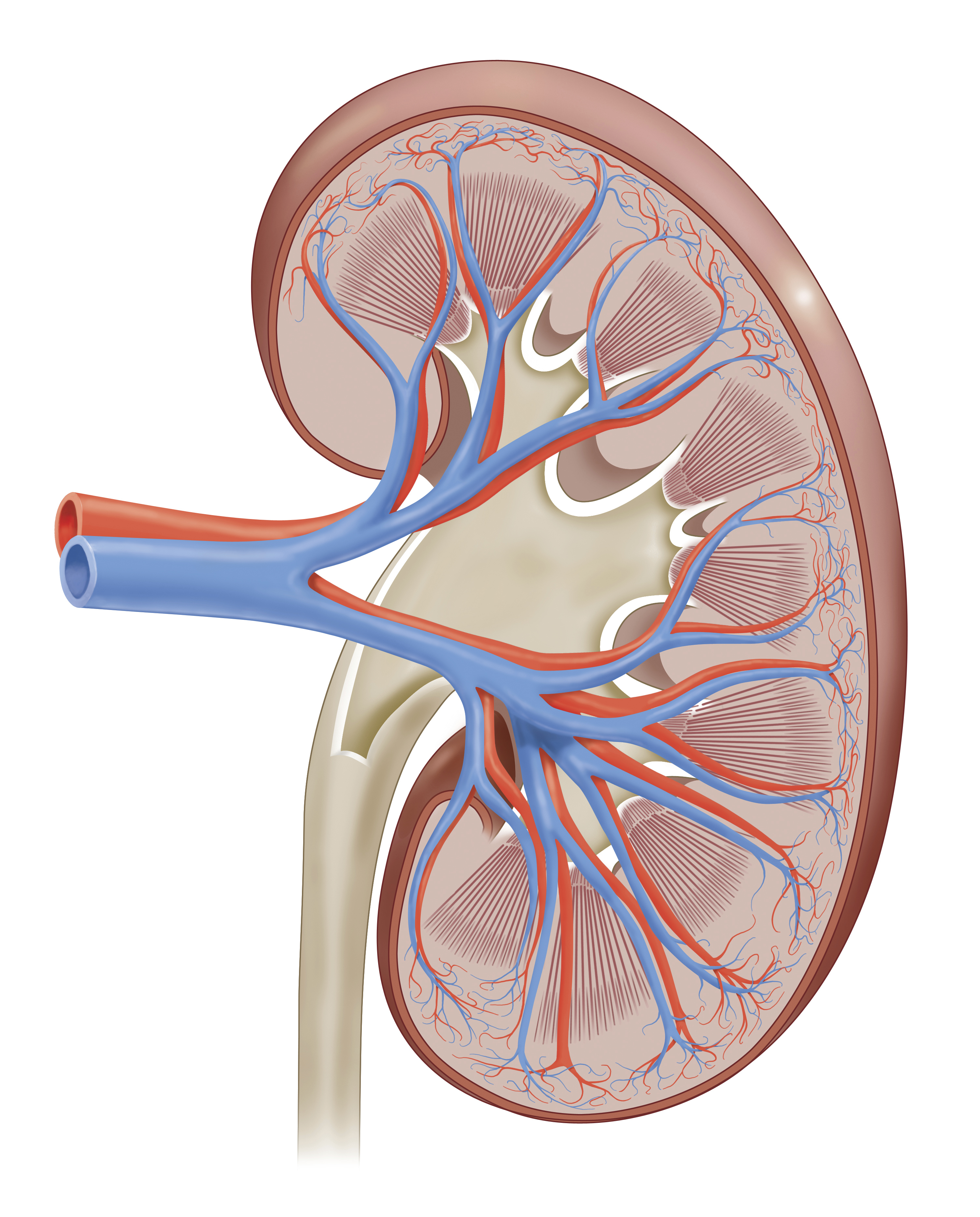What is Chronic Kidney Disease?
 Chronic Kidney Disease (CKD) is an alteration in the normal function of the kidneys caused by a chronic process and it is usually not reversible. Functionally, the kidney tissue is less capable of performing its functions which include: the filtration of blood, the control of the acid base status, electrolyte concentration control, fluid and blood pressure management, generation of erythropoietin for red blood cell production and activation of vitamin D.
Chronic Kidney Disease (CKD) is an alteration in the normal function of the kidneys caused by a chronic process and it is usually not reversible. Functionally, the kidney tissue is less capable of performing its functions which include: the filtration of blood, the control of the acid base status, electrolyte concentration control, fluid and blood pressure management, generation of erythropoietin for red blood cell production and activation of vitamin D.
The processes that most commonly result in CKD are persistent uncontrolled hyperglycemia from diabetes mellitus, persistently elevated blood pressures, acute or subacute inflammatory conditions of the kidneys and genetically mediated anatomic abnormalities such as polycystic kidney disease (PKD). These processes result in scarring and fibrosis of the kidney tissue, with loss of renal cells in the cortex and medullary portions of the kidneys.
Chronic kidney disease is usually classified in stages, going from I to V. The function that has been chosen to assign the stages is the filtration function, measured as a variable called glomerular filtration rate (GFR). Although the kidney has many different functions, they are related to each other. The relationship is not perfect, but is is safe to say that if there is a reduction on the filtration function function of the kidneys, the other functions will be affected, in variable degrees. It is also possible that certain functions of the kidney may be affected with little change in other functions, for example, there are conditions that involve abnormalities in the handling of potassium or acidity without a change in the filtration function or generation of erythropoietin, however, these conditions are not too common.
The final stage of CKD is called end-stage renal disease (ESRD). At this stage, renal replacement therapy (RRT) becomes necessary. RRT includes dialysis (in its different modalities) and renal transplantation.
Obtained from: http://blog1.smopinions.com/2018/02/what-is-chronic-kidney-disease.html
We accept donations:
Keeping a blog requires resources. Help us continue our ability to post!
Bitcoin: 3AGGBro8C9xw2NH5ct5aC78746iMCevbtE
Litecoin: M9HacT6MZpAqi8j4FfgW8uw517HxCfLWTD
Bitcoin Cash: 3GiDbZaaTUKoPij4FYA4o7UE6xkxUF7guV
You forgot to mention how hard pharmaceuticals are on the kidney's. I would say that is the main reason for the increasing number of chronic kidney patients.
Yes diabetes is a big problem but all those things that you take to deal with it also contribute to loss of kidney function.
Some medications cause kidney disease, for sure. Most of the ones that cause them cause acute kidney problems, which is not the scope of the article. Medications such as NSAIDS are certainly a cause of CKD. Thanks for reading the article, help me by sharing it with others.